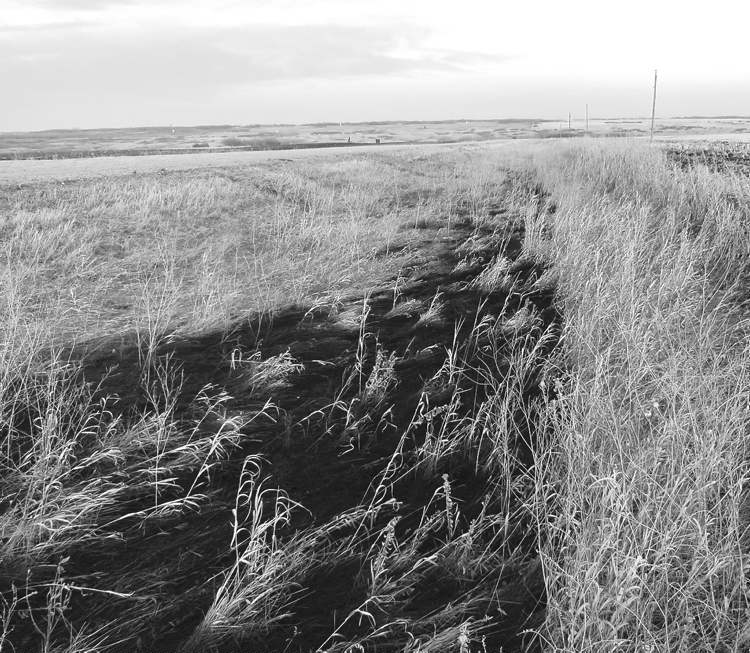Farmer alleges staff shortages in oilpatch
Too few inspectors to deal with spills
Advertisement
Read this article for free:
or
Already have an account? Log in here »
To continue reading, please subscribe:
Monthly Digital Subscription
$0 for the first 4 weeks*
- Enjoy unlimited reading on winnipegfreepress.com
- Read the E-Edition, our digital replica newspaper
- Access News Break, our award-winning app
- Play interactive puzzles
*No charge for 4 weeks then price increases to the regular rate of $19.95 plus GST every four weeks. Offer available to new and qualified returning subscribers only. Cancel any time.
Monthly Digital Subscription
$4.99/week*
- Enjoy unlimited reading on winnipegfreepress.com
- Read the E-Edition, our digital replica newspaper
- Access News Break, our award-winning app
- Play interactive puzzles
*Billed as $19.95 plus GST every four weeks. Cancel any time.
To continue reading, please subscribe:
Add Free Press access to your Brandon Sun subscription for only an additional
$1 for the first 4 weeks*
*Your next subscription payment will increase by $1.00 and you will be charged $16.99 plus GST for four weeks. After four weeks, your payment will increase to $23.99 plus GST every four weeks.
Read unlimited articles for free today:
or
Already have an account? Log in here »
Hey there, time traveller!
This article was published 03/11/2012 (4820 days ago), so information in it may no longer be current.
A southwestern Manitoba farmer who has witnessed the aftermath of three oil spills in the past year worries the province doesn’t have enough inspectors to police the oilpatch.
Carlyle Jorgensen, who farms near Cromer, about 110 kilometres west of Brandon, contends that one of the spills — a combination of saltwater and oil — was deliberate.
He said the spill, which occurred late last winter, covered a 300-metre length in a municipal ditch near his farm. Provincial inspectors came out to see it, he said, but there was no cleanup.

“Mother Nature cleaned it up,” he said, referring to heavy summer rains that flushed the saltwater solution into Pipestone Creek. All that remains is a trench in the ditch where the grass doesn’t grow.
Saltwater is a byproduct of oil extraction. Oil companies are required to dispose of their oilfield waste at approved treatment and disposal facilities.
The province has five inspectors stationed in the oilfields — three in Virden and two in Waskada.
“They are so understaffed. They are so swamped,” Jorgensen said.
Last year, Manitoba’s petroleum and exploration industry recorded 97 spills, nearly double the previous five-year average of 55.4, said Sally Housser, a spokeswoman for Innovation, Energy and Mines Minister Dave Chomiak.
Manitoba’s oilpatch has been booming recently, with more than 3,200 producing wells as of December 2011.
Housser noted the total volume of last year’s spills, some 704 cubic metres, was actually lower than in previous years, despite the higher number of incidents. No data were immediately available for 2012.
Housser said in an email that most industry spills are quite small and contained at oil and gas facility sites.
“There are very few spills compared to the large volume of oil and accompanying saltwater that is produced each year by the industry,” she wrote.
The province believes the five inspectors on staff “are sufficient,” given the number of spills that occur, Housser said.
She said when spills do occur away from production areas, the province relies on reports from the public.
The province has identified three instances in the last year where fluids have been dumped by a roadside, she said. Inspectors attempt to respond immediately to such reports, she added.
Jorgensen said provincial staff checked out the ditch spill but did not appear to take any action.
He knows of two other spills nearby, a minor one in the nearby RM of Pipestone and a larger one in the RM of Wallace, where he lives.
He commended the province’s actions in cleaning up the second large spill in his community, which he said was probably caused by “a valve issue on a truck.” It appears that when the trucker pulled over to the side of the road, “a considerable amount” of saltwater and oil pooled up in the ditch, the farmer said.
“The petroleum branch did an excellent job of cleaning it up. They were on it right away. Unfortunately, it shouldn’t be their responsibility (and expense),” Jorgensen said.
But unless someone sees an accidental leak or witnesses saltwater dumping, it’s just about impossible to prove that a particular company is to blame, he added.
Don Neufeld, reeve of the RM of Wallace, where the two spills occurred, could not be reached for comment on Friday.
larry.kusch@freepress.mb.ca


